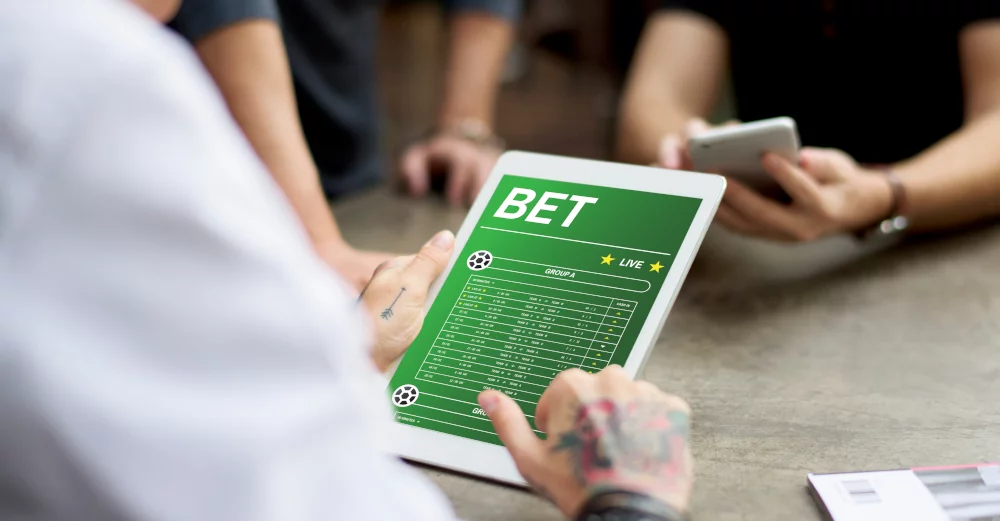
There’s a fine line between convenience and exposure. In South Africa’s digital betting world, that line is often blurred by terms and conditions most never read and permissions most forget they granted. You click “accept” to place a bet, maybe during halftime or in a taxi, but few ask where that data goes, who watches it, or what’s learned from it. Yet quietly, behind the slick interfaces of betting apps and colourful promotions, a deeper infrastructure hums, one that doesn’t forget.
This is a story about the shadows cast by the glow of your phone screen. Not about the game, or the odds, or even the wins, but about the digital breadcrumbs you leave behind when you play.
As South Africa’s iGaming industry expands, so does the reach of the platforms powering it. These aren’t static websites, they’re dynamic systems, designed to personalise your experience in real time. Every swipe, pause, bet, and withdrawal feeds algorithms that fine-tune what you see next. Better odds for the things you’ve chased before. Special promotions when your play dips. Nudges disguised as luck.
There’s a certain intimacy to how these platforms learn you. Play often on Fridays? Expect a bonus to hit Thursday night. Lose three bets in a row? A pop-up might appear, “Today’s your comeback.” It’s seductive. It’s efficient. But it’s also surveillance, packaged as service.
Many users assume it’s harmless. What could anyone really do with data that says you bet on a rugby match at 4:12pm? But layered over time, those moments create profiles sharper than memory. They know your betting rhythm, your emotional tells, your limits. It’s not fiction, major platforms use behavioural prediction tools trained on years of player data. And it’s not unique to betting. Streaming services, social media, even online shopping, all work this way. But the stakes here are different. This is money, risk, psychology.
Behind the code are teams of behavioural economists and machine learning engineers, optimising for retention. That means keeping you in the game. That means knowing just how far to push before you log off. It’s not personal, it’s design. But when a platform knows that after two small losses, you usually double down, and it uses that knowledge to suggest a bet… where does agency end, and influence begin?
The surveillance doesn’t stop at behaviour. Location data, when enabled, turns every bet into a mapped point. Some apps use this to ensure compliance with legal jurisdictions, others to track where the action happens. Over time, this forms heat maps of betting intensity. Taxi ranks, campuses, suburbs, late-night hotspots. Where you play becomes as valuable as how you play.
This data isn’t necessarily being sold in the dark alleys of the internet. But it is being used, to train algorithms, to serve ads, to shape platform strategy. And sometimes, to flag users. The same systems that reward loyalty can penalise success. Consistent winners, especially those who play strategically, sometimes find limits placed on their accounts. In extreme cases, accounts are suspended without clear explanation. Winning too often, it turns out, can look suspicious to a system optimised for edge.
Some players have noticed. Forums tell stories of sudden changes in odds, promotions that vanish after a big win, or accounts flagged after a lucky streak. There’s rarely transparency. Platforms call it security. Players call it sabotage. Somewhere in between is the silent logic of the algorithm.
 It’s not just the platforms. Governments are watching too. With South Africa’s betting market expanding and regulation still adapting, authorities are exploring ways to monitor online gambling more closely. This includes calls for tighter identity verification, real-time tax reporting, and transaction tracking. For some, it’s about protecting players. For others, it’s about control. Either way, it means more eyes, more logs, more permanence.
It’s not just the platforms. Governments are watching too. With South Africa’s betting market expanding and regulation still adapting, authorities are exploring ways to monitor online gambling more closely. This includes calls for tighter identity verification, real-time tax reporting, and transaction tracking. For some, it’s about protecting players. For others, it’s about control. Either way, it means more eyes, more logs, more permanence.
And yet, despite all this, the appeal remains. There’s a thrill in placing a bet, even when you know the system knows you. There’s comfort in a smooth app interface that seems to read your mind. Maybe we’ve accepted the surveillance because we’ve been trained to. Maybe it’s the cost of participation. Maybe we’ve mistaken precision for care.
But there’s something quietly defiant about knowing. About playing with full awareness of the system’s gaze. About recognising the signals behind the spin. Not every player wants to unplug. But more are learning to look under the hood.
Data hygiene is becoming its own form of resistance. Some players now use VPNs, clear cookies, switch devices. Others set hard personal limits outside the app. A few have even returned to physical outlets, preferring the tactile risk of a paper slip to the silent accumulation of metadata. Still, the tide is digital. The future of gambling, like most things, will be tracked, learned, stored. But maybe it doesn’t have to be opaque. Maybe transparency is the real jackpot. A platform that shows you what it knows. A system that invites you to understand, not just obey.
Until then, the best we have is awareness. A clear-eyed look at the smoke around the signal. A willingness to ask, not just what the odds are, but who’s writing them. Because in this new digital terrain, luck isn’t the only thing being tested. So is trust.
And the house, as always, is watching.







